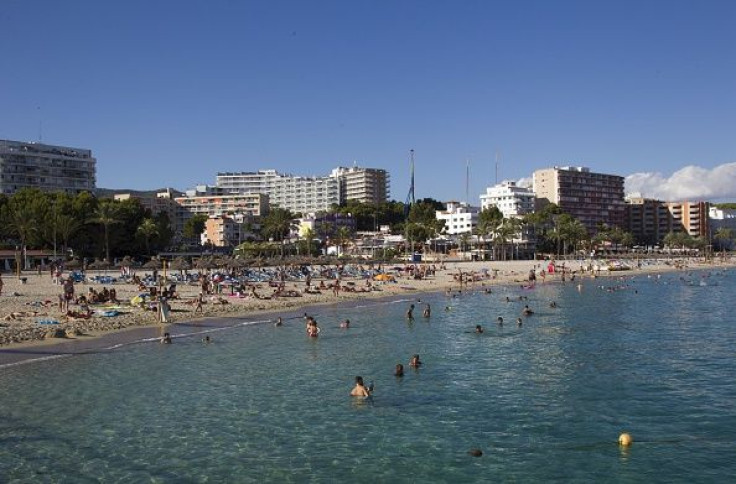Shark Near Majorca Beach Panics Beachgoers
Beachgoers at a holiday resort in Magaluf, Spain, spotted an eight-foot-long blue shark. The beach destination momentarily closed, according to The Independent Monday.
Read: Biggest Shark Ever, Other Marine Animals Went Extinct In Newly Discovered Event
British tourist Tim Prottey-Jones, 27, was on Illetas beach with his wife Angela when the shark emerged.
“I noticed people all coming out at the same time. There was an eerie calm and parents were picking up their kids,” Prottey-Jones said to The Independent. “I was more excited than scared because I’d never seen anything like it. It was a surreal experience.”
Yup, that's a shark! Never seen a beach clear so quickly! #illetes #illetesbeach #shark #jaws pic.twitter.com/qUjfPQS1Bc
— Tim Prottey-Jones (@TimProtteyJones) June 24, 2017
The blue shark, known in Spanish as a tintorera, swam into shallow waters at around noon before thrashing around the sand and returning to the water. It was later spotted at both Cala Major and Can Pastilla beaches, according to a spokesman for Calvia Council, which has jurisdiction over Illetas. After it was examined by experts at the local Palma aquarium, they decided to put the shark down.
“After a thorough evaluation by the experts, a hook was detected in the mouth of the animal, which caused irreversible damage. In these circumstances, a sedative is administered to tranquilize the animal,” an aquarium technician said to Diario de Mallorca. “Afterwards, it is euthanized to minimize suffering, stress and to provide it with a dignified death.”
Experts determined the shark suffered wounds from a harpoon.

Thirteen shark attacks since 1580 were caused by blue sharks. Four of these attacks were fatal, according to a report titled the “International Shark Attack File” by the University of Florida’s Museum of Natural history. When compared to 314 shark attacks caused by great white sharks, 80 of which were fatal, blue sharks appear relatively non-threatening.
Read: How Likely Are You To Be Killed By A Shark?
Despite having posed little overall threat to humans in the past, there have been instances when blue sharks attacked humans. In July 2016, a 40-year-old man was hospitalized after being bitten by a blue shark at a Costa Blanca beach. He was swimming at Elche’s Arenales del Sol beach and came out of the water bleeding. He required stitches on his hand.
Blue sharks were declared “one of the most wide ranging of all sharks” by the IUCN Red List of Endangered Species. They have shown an affinity for migrating using movement patterns in order to reproduce and distribute their prey. Fishermen have targeted blue sharks for sport in the past, possibly explaining the harpoon attack on Sunday's shark.
© Copyright IBTimes 2024. All rights reserved.











